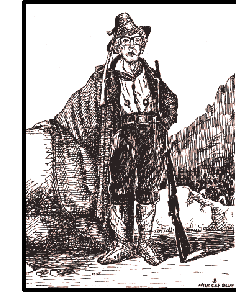
|

|

|

|
| |
|
|
|
Bandits (revised edition) Vivian Gornick once compared the sorrow of the ex-Communist to that of the lover at the end of the affair, writing that the party apostate "knew a kind of exhilaration and despair that can be understood only, perhaps, by those who have loved deeply and suffered the crippling loss of that love." Eric Hobsbawm, the famed British Marxist historian and lifelong Communist, more
Hobsbawm discovered Communism in the early '30s. Born in Alexandria, Egypt, of German and Austrian Jewish origins, he was 15 years old and living in Berlin when Hitler came to power; his family quickly fled to England. Communism's initial appeal for Hobsbawm was that it promised to defend "the great causes of the Enlightenment: reason, progress and the betterment of the conditions of all human beings," at a time when capitalism appeared to have led to the destruction of these ideas in the maelstrom of fascism, depression and war.
|


